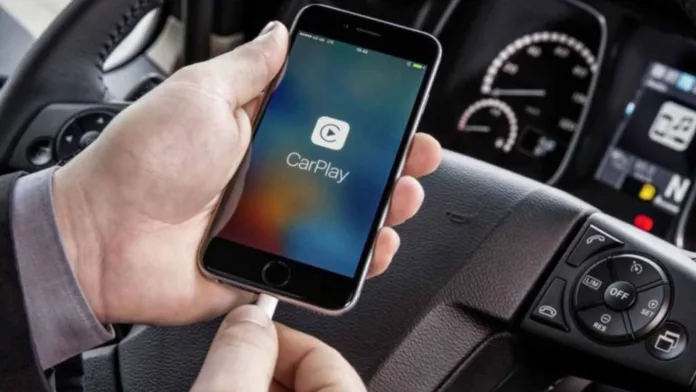Summary
- Smartphone Integration: Learn how technologies like Android Auto and Apple CarPlay allow smartphone integration in modern vehicles with contemporary car systems.
- Emphasis on Safety: Examine the safety protocols put in place by manufacturers, which prioritize road safety by limiting connectivity while driving.
- Users’ Solutions: Learn how to connect smartphones to infotainment systems in an easy-to-understand manner while highlighting the need of safe driving techniques.
- Empowering Drivers: Encouraging drivers to grasp infotainment system protocols is crucial to providing a safe and distraction-free driving experience.
- Promoting Safety Culture: Make use of smartphone integration in cars to leverage knowledge sharing among drivers to promote a culture of awareness and safety on the roads.
The integration of cellphones with automobile infotainment systems represents a breakthrough development in the current automotive scene. The widespread adoption of Apple CarPlay and Android Auto has transformed driving experiences by bringing comfort and connectivity together.
Table of Contents
The Development of Smartphone Integration in Modern Vehicles
With the development of systems such as Android Auto and Apple CarPlay, cellphones are now intricately integrated into modern vehicles. By converting the smartphone interface onto the dashboard, these technologies offer a smooth conduit that harmonizes the driving environment with accustomed digital interactions.

Android Auto and Apple CarPlay
The main goal of Android Auto and Apple CarPlay is to provide drivers with convenient access to essential smartphone features. The convenience and overall driving experience are enhanced by these synergies, which range from hands-free communication and navigation to music choices.
Also Read: Microsoft’s Copilot Key: Revolutionizing the Windows Experience
Fundamental Safety
These developments do not, however, come without safety concerns. These systems are painstakingly engineered by manufacturers with safety as their first priority. As a result, in an effort to reduce distractions and emphasize road safety, they have placed restrictions on connectivity while driving.
Comprehending the Objectives of Manufacturers
When some users may find it confusing, the removal of connectivity functions when driving is a purposeful safety precaution. In an effort to prevent accidents caused by drivers paying too much attention to their phones while driving, manufacturers are working to reduce distracted driving.
Resolving Issues with Connectivity
This issue can be resolved by following a straightforward but essential procedure: make sure the car is stationary before attempting to connect cellphones to the entertainment system. This little action considerably reduces potential risks and makes driving safer.
Providing Knowledge to Empower Drivers
Users frequently experience uncertainty and annoyance as a result of their ignorance of these safety precautions. For the sake of convenience and security, drivers must become familiar with how the entertainment system in their car operates.
Encouraging a Safety-Aware Culture
By educating other drivers about this information, you can promote road safety and awareness. Encouraging people to make connections before they leave can have a big impact on road safety.
Conclusion
In conclusion, even though smartphone integration in cars makes things more convenient, safety always comes first. Without sacrificing technology developments, drivers can guarantee a safer driving experience by understanding manufacturers’ goals and following basic protocols.
Unique FAQs:
Q. 1. Why can’t I connect my phone to the infotainment system while driving?
A. 1. Manufacturers prioritize safety, deactivating connectivity while driving to minimize distractions and promote safer driving habits.
Q. 2. How can I ensure a smooth connection with Android Auto or Apple CarPlay?
A. 2. Park your vehicle safely before attempting to link your smartphone to the infotainment system.
Q. 3. Why is knowledge of infotainment protocols essential for drivers?
A. 3. Understanding these protocols ensures both convenience and safety while using smartphone integration in vehicles.
Q. 4. What role do users play in fostering a safety-conscious driving culture?
A. 4. Sharing knowledge about safe connectivity practices among fellow car owners can significantly enhance road safety.
Q. 5. What’s the primary focus while integrating smartphones into vehicles? A. 5. The primary aim is to merge comfort with connectivity while prioritizing safety measures to minimize distractions.
Disclaimer:
AI was used to conduct research and help write parts of the article. We primarily use the Gemini model developed by Google AI. While AI-assisted in creating this content, it was reviewed and edited by a human editor to ensure accuracy, clarity, and adherence to Google's webmaster guidelines.


